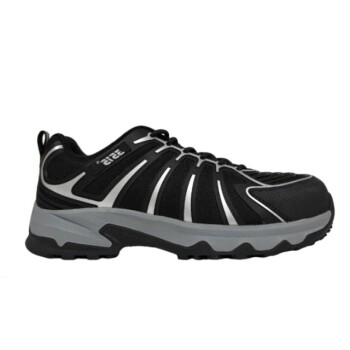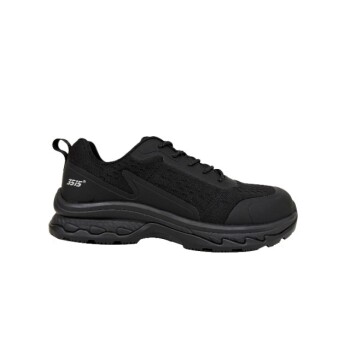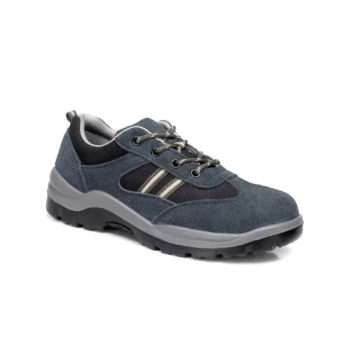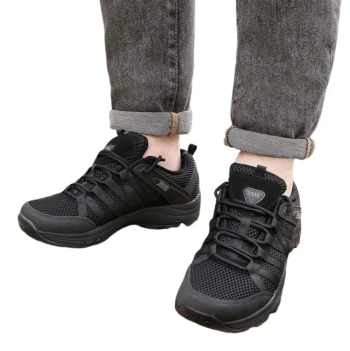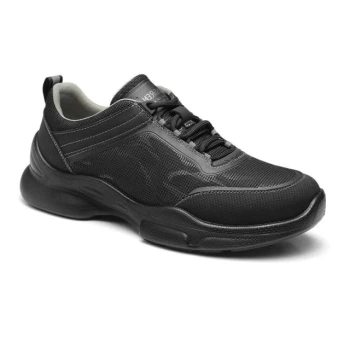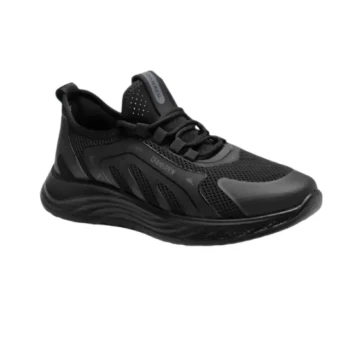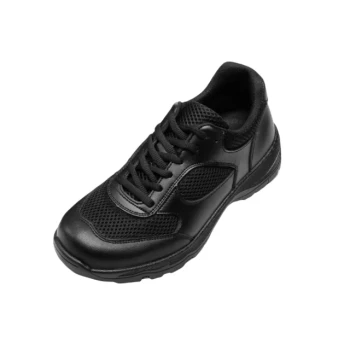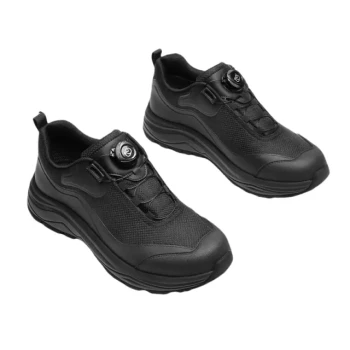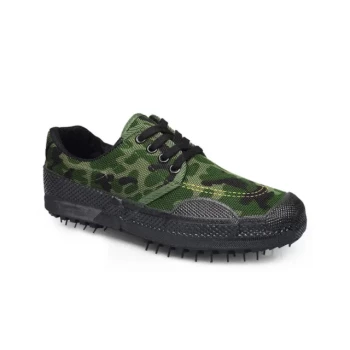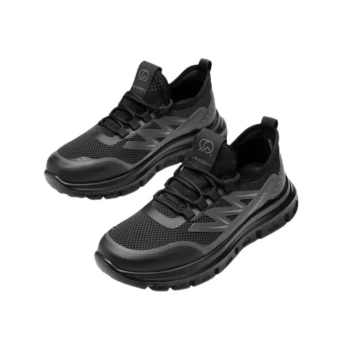The weight of your work shoes directly impacts your daily energy level. Lighter shoes significantly reduce muscle strain and fatigue over a long shift, allowing you to stay more comfortable and focused. Conversely, heavier shoes demand more effort with every step, which can contribute to feeling tired and less mobile by the end of the day.
While lighter shoes clearly reduce fatigue, the ideal work shoe is not always the lightest. The choice is a critical balance between minimizing energy expenditure (lightweight) and ensuring necessary protection and stability for your specific job (heavier).
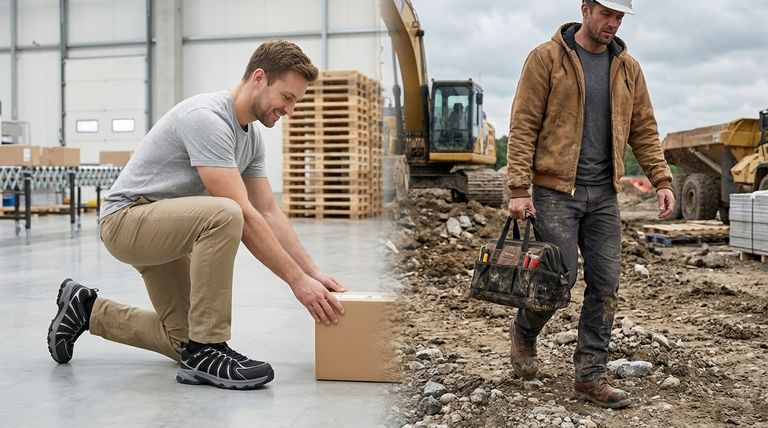
The Physics of Fatigue: Why Every Ounce Counts
The connection between shoe weight and comfort is rooted in simple biomechanics. Over a full workday, the small penalty of extra weight is magnified by thousands of steps, leading to a noticeable drain on your energy.
The Energy Cost of Every Step
Lifting your feet is an action you perform thousands of times per day. Even a few extra ounces on each foot forces your leg muscles to work harder with every single step, consuming more energy and accelerating fatigue.
Direct Impact on Muscle Strain
This added effort isn't just tiring; it places measurable strain on the muscles in your feet, calves, and even your lower back. Lighter footwear directly reduces this cumulative load, helping to prevent soreness and strain.
Agility and Responsiveness
Lightweight shoes allow for greater agility and quicker movements. This is critical in jobs that require you to be fast on your feet, as heavier shoes can feel cumbersome and slow your reaction time.
When Heavier is Better: The Case for Protection and Stability
While lightness is a key component of comfort, it cannot come at the expense of safety and support. In many work environments, heavier shoes are a non-negotiable requirement for their protective features.
Stability on Uneven Ground
Heavier boots often provide more rigidity and ankle support. This robust construction creates a stable platform, which is essential for preventing twists and falls when working on uneven or unpredictable surfaces.
Enhanced Durability
Materials that provide superior protection—like thick premium leather, steel shanks, and dense rubber outsoles—inherently add weight. These materials are chosen for their ability to withstand harsh conditions and last longer.
Critical Safety Features
The most significant weight additions often come from essential safety components. Steel toes, metatarsal guards, and puncture-resistant plates are heavy but provide crucial protection from impact and hazards.
Understanding the Trade-offs
Choosing the right work shoe is not about finding the lightest option available; it's about finding the lightest option that still meets the safety and durability demands of your job.
The Lightweight Compromise
The lightest shoes may sacrifice durability or key protective features. An ultra-light shoe might be comfortable for walking on a flat surface but could be inadequate and unsafe on a construction site.
The Heavyweight Penalty
Conversely, choosing an overly heavy and protective boot for a job that doesn't require it is inefficient. You pay a penalty in fatigue and reduced mobility without gaining any necessary benefit.
Comfort is More Than Just Weight
True comfort is a combination of factors. A perfectly weighted shoe will still cause problems if it doesn't fit properly, lacks cushioning, or isn't breathable. Always consider support, flexibility, and fit alongside weight.
How to Apply This to Your Job
Select your footwear by first identifying the non-negotiable safety requirements of your role and then finding the lightest possible option that meets those needs.
- If your primary focus is mobility and reduced fatigue (e.g., warehouse logistics, delivery services): Prioritize shoes made with modern, lightweight composite materials that still offer basic toe protection.
- If your primary focus is maximum protection and stability (e.g., construction, heavy manufacturing): Accept that weight is a necessary trade-off for steel components and rugged construction that ensure your safety.
- If your work involves a mix of conditions: Seek a balance. Look for boots that use composite safety toes and flexible designs to reduce weight without compromising on essential durability and support.
Ultimately, the right work shoe supports your work without becoming a burden you have to carry.
Summary Table:
| Factor | Lightweight Shoes | Heavyweight Shoes |
|---|---|---|
| Energy & Fatigue | Reduces muscle strain, less fatigue | Increases energy expenditure, more tiring |
| Agility | Better for quick movements, responsive | Can feel cumbersome, slower reaction time |
| Protection & Stability | May compromise on safety features | Superior protection (e.g., steel toe), more stable |
| Ideal For | Warehouse, delivery, logistics | Construction, heavy manufacturing, hazardous environments |
Find Your Perfect Work Shoe Balance with 3515
Struggling to find work shoes that are both comfortable and protective? You don't have to compromise. As a large-scale manufacturer, 3515 produces a comprehensive range of footwear for distributors, brand owners, and bulk clients. Our production capabilities encompass all types of shoes and boots, allowing us to engineer the ideal balance of lightweight materials and robust safety features for your specific industry needs.
We help you:
- Reduce worker fatigue with strategically lightweight designs.
- Meet safety standards without unnecessary weight penalties.
- Improve productivity through enhanced comfort and mobility.
Let's discuss your requirements and create the perfect footwear solution for your team.
Contact our experts today for a consultation
Visual Guide
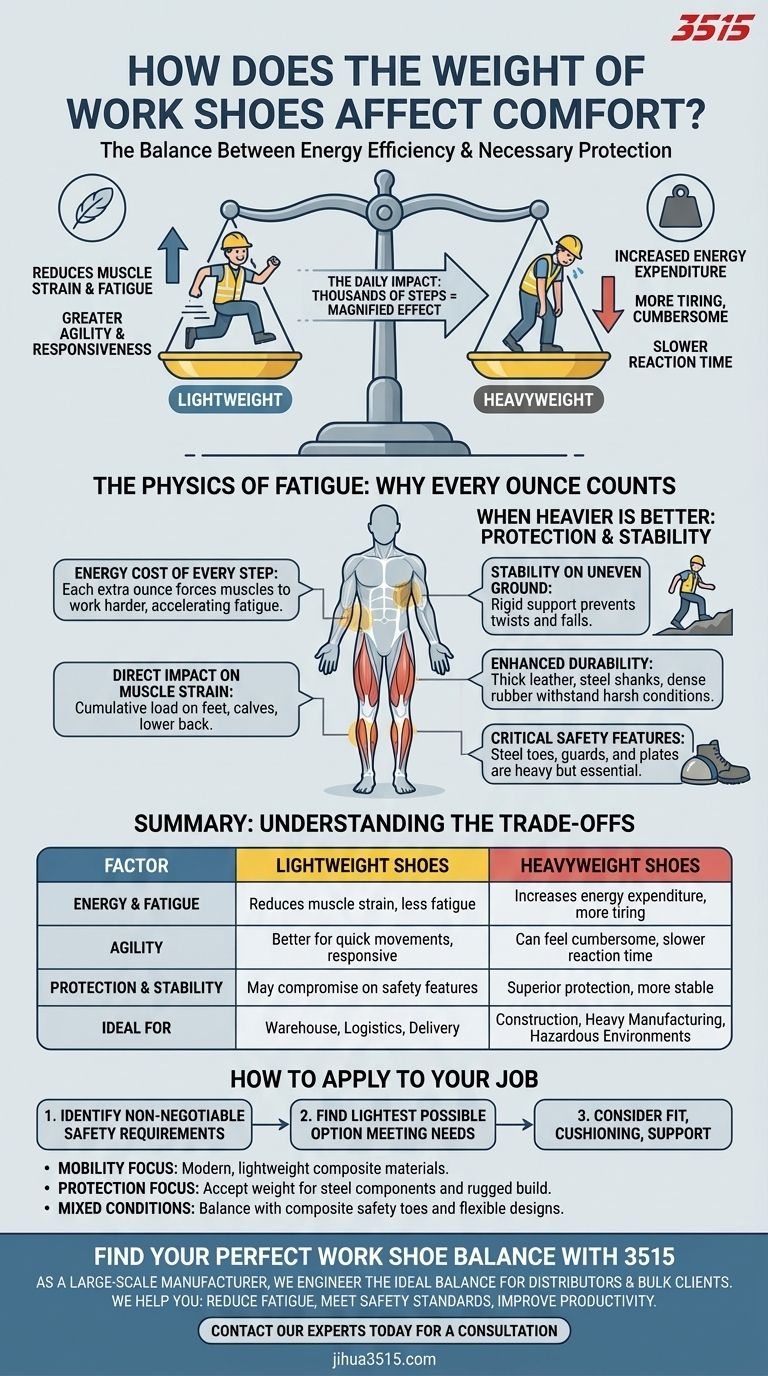
Related Products
- Premium KPU Athletic Safety Shoes for Wholesale
- Durable Rubber-Soled Utility Shoes for Wholesale & Custom Brand Manufacturing
- Premium Lightweight Safety Shoes for Wholesale & Bulk Orders
- Custom Safety Shoe Manufacturer for Wholesale & OEM Brands
- Lightweight Breathable Training Shoes for Wholesale & Custom OEM Manufacturing
People Also Ask
- What are the key properties of nylon as an upper material for labour protection shoes? A Guide to Lightweight Durability
- What are the characteristics of Oxford work shoes? A Guide to Professional Footwear
- What are the historical origins of composite-toe boots? From Wooden Clogs to Modern Safety
- What is the role of shock absorption in safety footwear? Protect Your Body from Repetitive Impact
- What is the primary goal when choosing between PVC and rubber boots? Match Your Needs for Safety, Comfort & Cost
- Why is puncture resistance required on job sites? Essential Protection Against Sharp Hazards
- How is compliance with the EN ISO 20345 standard certified? The Path to Independent Verification
- What role do high-toughness materials play in the design of puncture-resistant safety boots for snakebite prevention? Your Ultimate Shield Against Fangs
